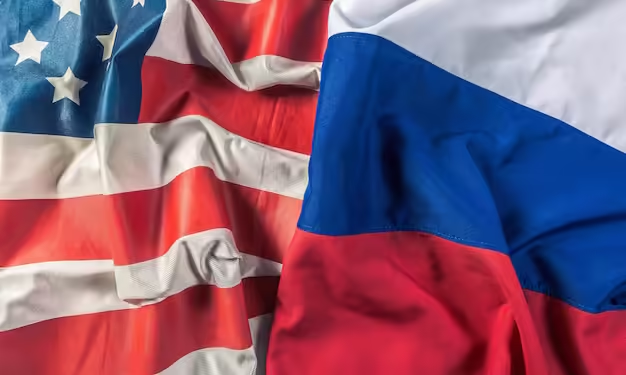Introduction
Foreign interference in democratic processes, especially regarding the role of Russia in United States elections, has been a subject of many discussions for the last several years. The 2016 and 2020 presidential elections in the United States of America saw quite shocking tactics to influence public opinion with the purpose of shifting the results of the elections. With Ghana’s elections on December 7, 2024 approaching, such dynamics are, all the more relevant. This paper has presented the methods used in the US by Russia, considering the possible implications on the integrity of Ghana’s election.
Russia’s Tactics in US Elections
The interference of Russia into US elections mainly deals with disinformation campaigns, social media manipulation, and cyber-attacks. In 2016, the Internet Research Agency (IRA) conducted a campaign whereby divisive content was spread across platforms like Facebook and Twitter to target demographics with the express purpose of amplifying frictions in society (Cartwright et al., 2022). Consequently, the goal was to impact the outcome of that election and to undermine confidence in democratic institutions. These strategies had morphed by the 2020 elections to include misinformation about processes of voting and public health, especially with regard to the COVID-19 pandemic (Eady et al., 2023). RT, formerly Russia Today, has gone beyond being merely a media organization: it contracted a private firm to pay unwitting Americans millions of dollars to carry the Kremlin’s message in influencing the 2024 US Elections and undermining democracy (The Guardian, 2024). Russia is the most prolific foreign influence actor using artificial intelligence to generate content targeting the 2024 presidential election. This advanced technology allows Russia to tailor a content often full of polarized bias more convincingly to persuade American voters (Bond, 2024).
The Global Landscape of Electoral Interference
Russia is not the only country that indulges in electoral interference, several other countries have been accused of similar tactics. China and Iran for instance have also been accused of attempting to influence foreign elections against the will of their people (Swenson, 2024). In 2022, China was accused of interfering with Australia’s elections. These are evidence of a trend where there is growing concern over the vulnerability of democracies worldwide to external manipulation. History is replete with such foreign influence examples, where propaganda campaigns of the Cold War for example, started off with letters and morphed into sophisticated media campaigns, which are living, breathing examples of how this influence has continuously evolved through times and technology (Osgood, 2002).
Implications for Ghana’s Elections
Ghana, while hailed as one of the most politically stable nations in West Africa, does not totally escape foreign influence. With the polls set for December 7, alongside the attendant benefits of this increased reliance on social media comes the risks: the rapid spread of misinformation that can affect voter behavior and erode trust in the electoral process, especially without strong cybersecurity measures in place to mitigate tactics similar to those seen in the US.
Above all, Ghana’s electoral body (the Electoral Commission) needs to exercise extreme vigilance. Past experiences of interference in Ghana’s elections suggest that targeted disinformation campaigns may take advantage of fault lines within the existing political divisions of the highly charged electoral cycle. This could portend significant risks of foreign actors exploiting local grievances to stoke political tensions.
Proactive actions should be taken by the electoral stakeholders in Ghana to safeguard the elections against foreign interference. First, increasing the level of public awareness of misinformation should help citizens become more active in screening the information coming their way. Secondly, setting up strict cybersecurity protocols would shield against digital threats and maintain the integrity of electoral infrastructure.
The collaboration with international organizations would further provide Ghana with the needed wherewithal toward general resources and best practices on the integrity of elections. In addition, discussions with technology companies would indeed be important in assuring overall free and fair elections devoid of disinformation across their platforms.
In all, Ghana’s democratic experiment is a pacesetter in Africa, and therefore the peaceful outcome of the 2024 election is crucial in solidifying Ghana’s democratic credentials.
Reference
Bond, S. (2024). How Russia is using AI for its election influence efforts: NPR. Retrieved October 30, 2024, from https://www.npr.org/2024/09/23/nx-s1-5123927/russia-artificial-intelligence-election
Cartwright, B., Frank, R., Weir, G., & Padda, K. (2022). Detecting and responding to hostile disinformation activities on social media using machine learning and deep neural networks. Neural Computing and Applications, 34(18), 15141-15163. https://doi.org/10.1007/s00521-022-07296-0
Eady, G., Paskhalis, T., Zilinsky, J., Bonneau, R., Nagler, J., & Tucker, J. A. (2023). Exposure to the Russian Internet Research Agency foreign influence campaign on Twitter in the 2016 US election and its relationship to attitudes and voting behavior. Nature communications, 14(1), 62. https://doi.org/10.1038/s41467-022-35576-9
Osgood, K. A. (2002). Hearts and Minds: The Unconventional Cold War [Review of U.S. Television News and Cold War Propaganda, 1947–1960; Operation Rollback: America’s Secret War behind the Iron Curtain; Freedom’s War: The American Crusade against the Soviet Union; Undermining the Kremlin: America’s Strategy to Subvert the Soviet Bloc, 1947—1956; Broadcasting Freedom: The Cold War Triumph of Radio Free Europe and Radio Liberty; The Cultural Cold War: The CIA and the World of Arts and Letters, by N. Bernhard, P. Grose, S. Lucas, G. Mitrovich, A. Puddington, & F. S. Saunders]. Journal of Cold War Studies, 4(2), 85–107. https://www.jstor.org/stable/26925184
Swenson, A. (2024). Efforts by Russia, Iran and China to sway US voters may escalate. Retrieved October 30, 2024, from https://apnews.com/article/russia-china-iran-disinformation-election-ef9b5155349d496e00513e7b3bc3fc07
The Guardian,.(2024). Russia accused of trying to influence US voters through online. Retrieved October 30, 2024, from https://www.theguardian.com/us-news/article/2024/sep/04/russia-accused-of-trying-to-influence-us-voters-through-online-campaign






























